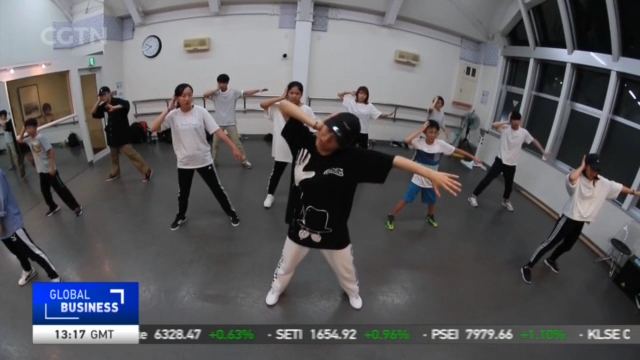
22:03, 30-Aug-2019
Japan-S. Korea Tensions: Minimal impact on K-pop culture
Updated
22:20, 30-Aug-2019

Political and economic tensions between Japan and South Korea have surged in recent months, with Tokyo removing Seoul from a list of preferred trading partners and a growing boycott of Japanese products in South Korea. But culturally, the diplomatic row has had minimal effect on the spread of Korean pop culture among Japanese youths. Mayu Yoshida reports.
This studio in Tokyo is dedicated to K-pop dance. Here, Japanese K-pop fans and wannabe stars mimic the choreography of their favorite Korean groups.
SORA SUZUKI, 12-YEARS-OLD JAPANESE "My first exposure to K-pop was back in kindergarten when my aunt showed me a video of Infinite. It was so cool."
MIHO TANAKA, 24-YEARS-OLD JAPANESE "I think the quality of dance and singing of Korean artists are higher than Japanese artists."
Despite the current political situation between Japan and South Korea, dance studios like this continue to see rising business thanks to what is known as a "third wave" of Korean culture to hit Japan.
The first wave came ashore in 2004 led by Korean television, followed by a second boom five years later generated by Korean music.
SHIBAI SACHIKO, MANAGER K-POP DANCE STUDIO CIELO "We opened this studio in 2011. When bilateral relations previously soured years ago, Japanese TV stopped showing Korean artists and our studio was slightly affected by that. But this time, Korean performers appear on Japanese media as usual and thanks to the third-wave of Hanryu, there's no negative impact to our studio."
Relations between Japan and South Korea are at one of their lowest points in recent history.
Disputes over wartime history have spilled into everything from trade to diplomacy, and now national security.
MAYU YOSHIDA REPORTER "Despite the political flareup, the number of Japanese visitors to South Korea in July jumped about 20%. Most of them are young Japanese women who are attracted to Korean music, cosmetics and food. But it's a different picture the other way around, with the number of Korean visitors to Japan significantly falling. In fact, the recent dispute between Tokyo and Seoul has struck wide range of Japanese industries, such as tourism, auto and beer."
LEE SOO-CHUL BOARD MEMBER OF SEOUL-TOKYO FORUM "Japanese people love BTS, TWICE, Cho Yong-pil and Na Hoon-a. They are all very popular, but sometimes they are not able to perform whenever they want, because of the situation. However, in Japan, local residents and some even from big cities welcome them as K-pop stars."
Japanese business leaders are struggling to contain the fallout from escalating tensions between the governments of Tokyo and Seoul, K-pop fans in Japan don't seem to be bothered at all, at least for now.
SITEMAP
Copyright © 2018 CGTN. Beijing ICP prepared NO.16065310-3
Copyright © 2018 CGTN. Beijing ICP prepared NO.16065310-3